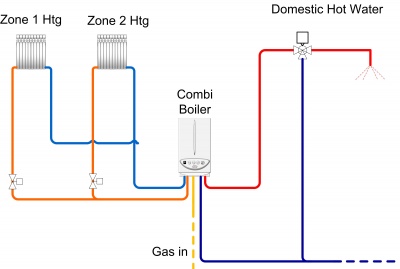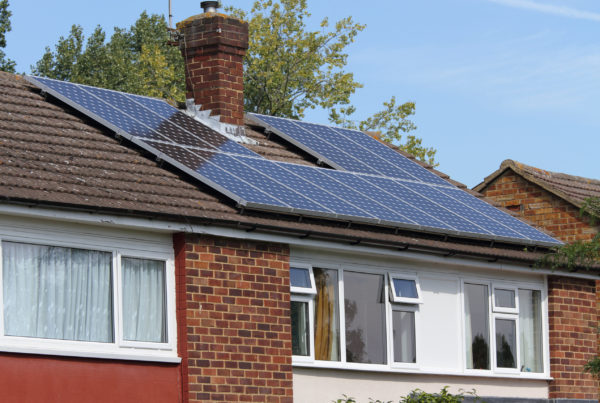
Remember those old uni-tasker mobile phones in the 90’s?
Neither do I. And it’s hard to imagine that they only did one thing compared to today’s smart phones, which do numerous things and are a fraction of the size. While the HVAC industry is a bit slower to evolve than phone technology, there has been a silent multi-tasker at work saving energy, space, materials, installation time, and therefore, cash. It’s called a combination boiler, combi-heater, or combi-boiler.
How it Works
The combi-heater typically has one burner provides heat for at least two systems: one for space heating and one domestic water heating.
Energy
The main way that the combi-heater saves energy is by minimizing or eliminating standby heat losses incurred by storage-type heating systems, just as a tank-less or on-demand heater would. With a storage-type heater, these losses are incurred all the time whether the heating system is used or not. Most manufactures also have options for condensing burners, pump controls, and water supply temperature reset controls. These recommended options increase the efficiency even more!
Time & Space
Using up to 80% less space than a conventional boiler, pumping, and domestic hot water installation, the combi-heater is extremely space efficient. It’s modular and includes everything in one package. It also takes a minimal amount of coordination and time to install or replace.
Applications
Variations of combi-heaters can be used in both commercial and residential applications where there is demand for both domestic water and space heating. Commercial applications may be limited by the size of the available combi-heaters, although they can be readily installed and controlled in modular fashion for added capacity.
Conclusion
All of these efficiencies add up to cost savings. Energy savings reduce operating expenses. Space savings increase rentable or usable area. And paying a lower system capital and replacement cost just makes you feel like it’s the 90’s again!




